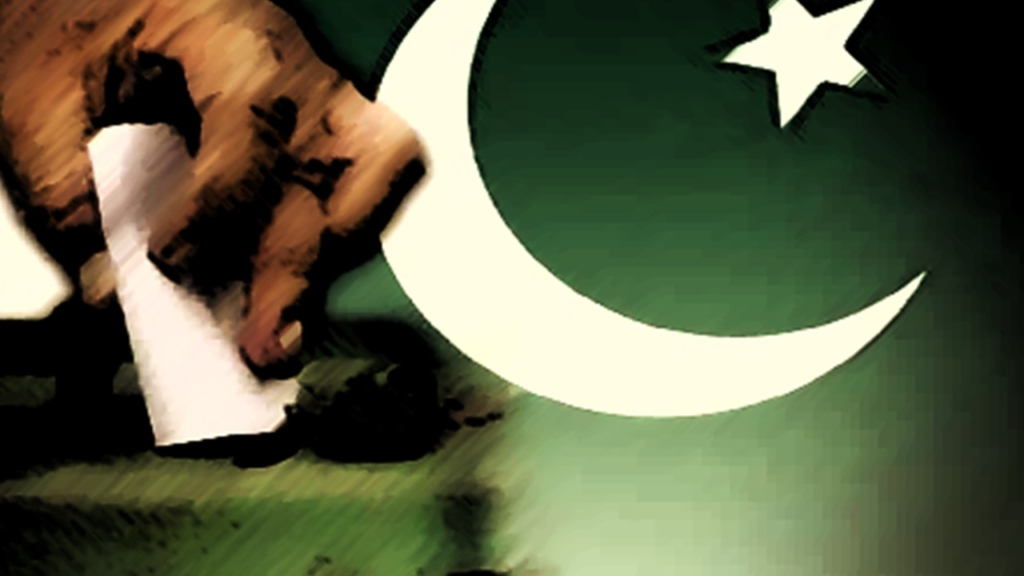The election on 25 July 2018 has inspired much-needed optimism as well as serious doubts.
The feeling that we can shape a better future through an election is not new. It was evidently widespread at least during the elections in 1970, 1988 and 2007. The scale, however, is perhaps a lot higher this time.
The accusations of rigging, casting a shadow on this wave of optimism, are not new either, although here again the scale seems to be much higher (Dawn has just come out with the headline, ‘Rigging is alleged each time. But the sheer scale of it is what casts a shadow on these elections’).
What is really new, however, is the combination.
The two contrasts – euphoria of optimism, and serious allegations of massive rigging – have seldom appeared together in the past. In 1970, 1988 and 2007, when optimism was comparable to the present, the election results were generally approved by major contestants (and hence, the analyst quoted in the above-mentioned story of Dawn is wrong in saying that Pakistan has no precedent of accepting election defeat).
This is why it might be difficult to guess the long-term effects of this election, and a lesson from history may come handy.
Similarities with 1970
Today, Nawaz Sharif appears to be pro-India just as Sheikh Mujibur Rehman was accused of having ties with India back then.
Likewise, the anti-India stance of Imran Khan, his perceived or real collaboration with the military authorities, and his promise to deliver justice are reminiscent of Zulfikar Ali Bhutto of those days.
For PPP, history seems to have come full circle. The party was started by Bhutto avowedly to bring wrath upon those who exploited the people. Today, the heirs of Bhutto are to the followers of Imran the “epitome of all that is bad in the country.”
Most importantly, we should not forget Balochistan.
Just a few weeks before the election in 1970, East Pakistan (now Bangladesh) was struck by the devastating Bhola cyclone and up to 500,000 people lost their lives. West Pakistan failed to understand the magnitude of this disaster, and the feeling of alienation between the two wings escalated.
This time, it has been the fate of Balochistan to be hit by the second deadliest terrorist attack in the entire history of the country on 16 July, leaving 149 dead and 70 injured, while the rest of the country was preoccupied with the arrest of Nawaz Sharif. On the day of election itself, the provincial capital was rocked by a blast that killed 31 and injured 35.
Differences
So much for similarities between the situation in 1970 and 2018. The most significant differences are two.
Firstly, we now have incomparably greater access to information.
Back then, people in different parts of the country could not know the thoughts of each other as effectively and swiftly as they can today. Today, unlike then, diverse segments of the masses can consult each other directly.
Back then, many people across the country failed to realize in time that they were being played on by the enemy. Today, the Indian proxy stands exposed. People in Pakistan have seen for themselves how the Indian media ran bulletins and bulletins on the anti-army slogans raised by some supporters of Sharif near the General Headquarters of Pakistan Army in Rawalpindi three days before the election.
Secondly, we might be at a different stage in our collective evolution. The intelligentsia will probably deny this, since they tend to think that we have not been growing and evolving as a nation. I disagree. My study of Iqbal has helped me see the history of Pakistan as a meaningful story (see my book, 2017: The Battle for Marghdeen).
From this point of view, the personalities and the events today might look similar to the past – déjà vu – but they might as well be mirror image likenesses of the former. It is quite possible that we are on the verge of a reversal.
Possibilities
Whether this reversal comes through gain or through loss, of course, depends on the choices we make in the near future.
In making those choices, let’s be mindful of the lessons we can learn from our history. After all, the whole point of giving any attention to history is that it is like seismography. It helps us prepare for possible disasters before they become completely visible.

I hope we don’t forget our history.
Thank you. Very good article.
Khurram Sir,
This article powerfully points out the value, the need, to be aware of one’s history. I like the comparison to seismography.
robert
Dear Sir,
Thanks for this post. Your posts are always filled with positive optimism that inspire a soul to look for the will of collective ego.
During all the buzz of elections i too remembered baluchistan and i was overwhelmed by you mentioning it in your article. We have few people left to think about history or even to look at the prrsent critically. I hope our collective ego doesn’t go astray in “making our future decisions”. I hope you keep on lighting up the candle and guide the way in this darkness of ideas and turmoil.
I wish to have time on my hand and will to learn to keep on learning from people like you.